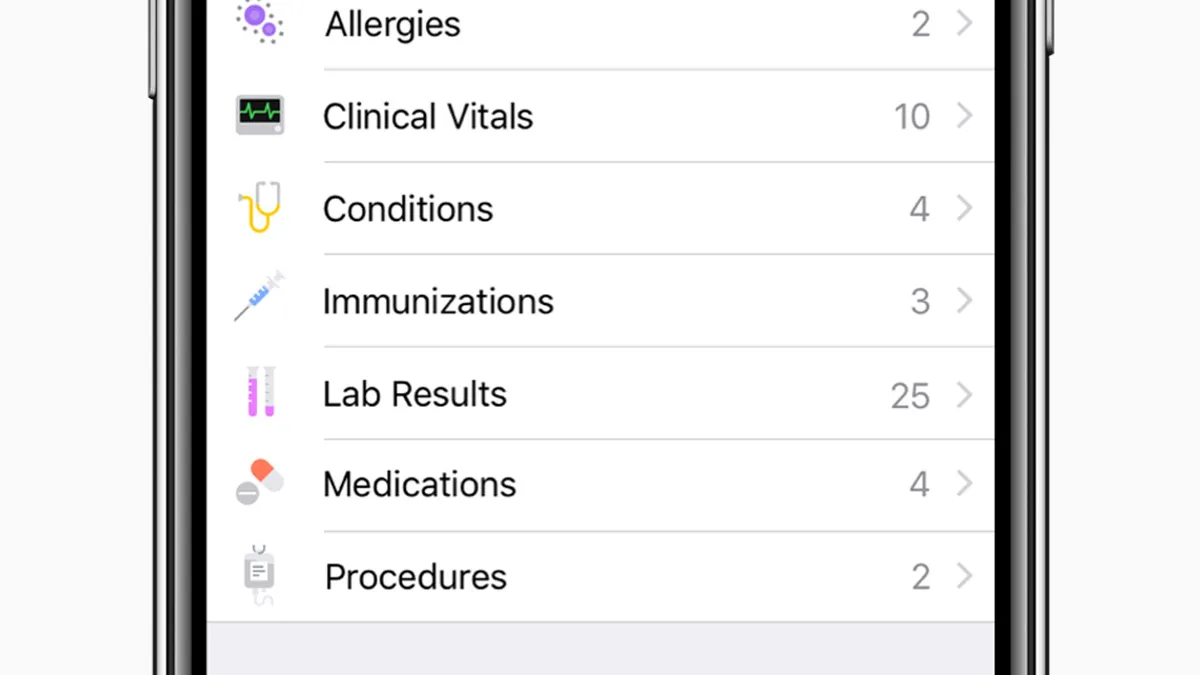Dive Brief:
- Commercial clinical diagnostic laboratory giant Quest Diagnostics announced last week that it has enabled customers with a MyQuest account to integrate their lab test results into Health Records on Apple's iPhones.
- The move follows rival LabCorp's announcement that it added a similar integration for iPhone users in October. Both corporations said the addition enables consumers to take a more active role in managing their healthcare decisions.
- Quest Diagnostics said that more than six million of its customers already utilize MyQuest, which allows them to see test results on a smartphone, tablet or desktop computer.
Dive Insight:
The feature addition is the latest effort by the lab testing giants to stay one step ahead of the other in a battle over customers amid a climate that is putting downward pressure on reimbursement, particularly from Medicare. Last week, Horizon Blue Cross Blue Shield of New Jersey announced it would be adding Quest Diagnostics to its laboratory network in 2019 for some customers, a blow to LabCorp which has enjoyed exclusive access to those customers in the past.
Major insurers Aetna and UnitedHealth also have signed agreements to expand their networks beyond a single provider, exposing both Quest Diagnostics and LabCorp to increased competition.
The MyQuest integration into the Apple Health app allows for lab data to be viewed alongside medical information from participating providers such as allergies, immunizations and medications.
"Consumers play a more active role in managing their health and wellness than ever before, and they expect the most accurate and up-to-date diagnostic information, so that they can make educated decisions," Quest SVP Cathy Doherty said in a press release. "The MyQuest update supporting Health Records on iPhone is another resource for individuals to empower better health."
Quest Diagnostics said that it expects its partnerships with Safeway and Walmart will augment the new service, adding it expects to have more than 200 patient service centers in retail stores by the end of 2018.
More than 130 institutions currently support health records on iPhone, ranging from Cleveland Clinic to Scripps Health, according to Apple.












